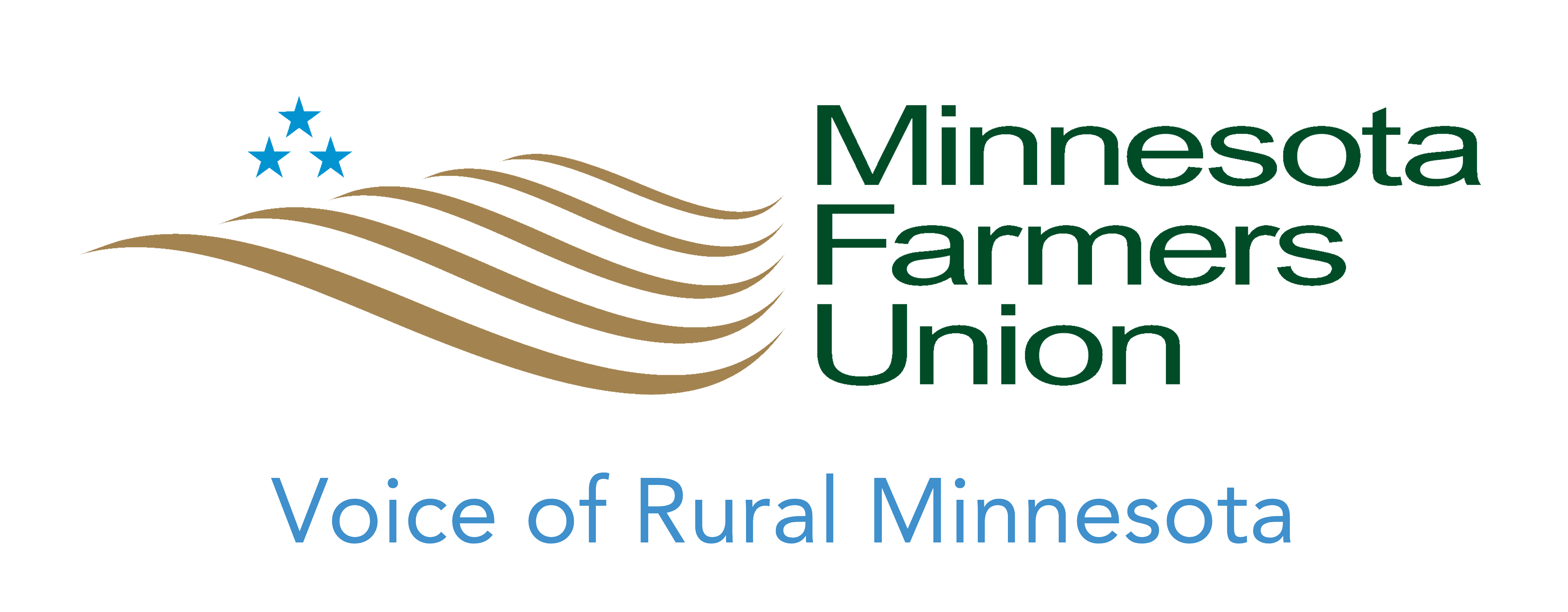Legislative Update: Session starts

On Tuesday, Jan. 3, the Minnesota legislature convened for what will surely be a consequential session. Legislators will be tasked with setting the state’s next biannual budget. Beyond that, incoming DFL majorities will be eager to deliver on promises they made to voters during the election and throughout years of divided government. As always, the MFU team is working hard to prepare for session, meet with partners, and—importantly—connect with key legislative leaders about our top priorities.
To recap, the DFL won a trifecta in the November election, flipping the state Senate and retaining control of the state House, the governorship, and all constitutional offices.
On Monday, Jan. 2, Gov. Tim Walz, Lt. Gov. Flanagan, and constitutional officers were sworn into office during an inauguration ceremony. Walz spoke about his priorities for the upcoming session, leading with his plans to make Minnesota a better state for kids, including by making the “largest investment in public education in this state’s history,” investing in paid family leave, and helping end child homelessness and poverty.
Walz also highlighted opportunities to invest in healthcare affordability, workforce, job creation, and tackling climate change.
Attorney General Keith Ellison also spoke to MFU priorities highlight his renewed commitment to “protect farmers and rural communities from monopoly.”
With the start of session, legislators are gathering in St. Paul and starting to organize introductory hearings on agency work and key legislative issues. You can find an updated calendar here.
Here’s more of what we know about the upcoming session:
Leadership– soon after the November election, members of the Senate and House met to elect leadership:
State Senate: 34 DFL to 33 Republican
Majority: Majority Leader Kari Dziedzic (DFL-Minneapolis)
Minority: Minority Leader Mark Johnson (R-East Grand Forks)
State House: 70 DFL to 64 Republican
Majority: Speaker Melissa Hortman (DFL-Brooklyn Park)
Minority: Minority Leader Lisa Demuth (R-Cold Spring)
Fortunate for MFU, leaders in both houses have a proven track record of working on agriculture issues.
Speaker Melissa Hortman who is returning to her post was just elected to her 10th term and has led her caucus through three consecutive budget cycles. In each, her leadership was required on agriculture issues, including last session to secure quick action on emergency funding to address the avian flu and to approve drought relief. In 2019, she personally championed the Dairy Assistance, Investment, and Relief Initiative (DAIRI) which provided grants to dairy farmers who enrolled in the USDA FSA’s Dairy Margin Coverage Program. This work earned her the legislator of the year award from the Minnesota Milk Producers and is still benefiting Minnesota producers as our state boasts some of the highest DMC enrollment in the nation.
In the Senate, Leader Dziedzic recently served as the minority lead for DFLers on the Senate Agriculture Committee and on the tax committee where she took the opportunity to dig in on issues important to MFU. When she spoke to delegates at MFU’s annual convention last month, she shared more about her family’s history of dairy farming in Rosemount.
In the minority, MFU has found opportunities to work with Leader Mark Johnson on agriculture issues relating to his district. And while our experience with Leader Lisa Demuth isn’t as extensive, her Deputy Minority Leader is Rep. Paul Torkelson who’s worked with MFU on a host of issues, including leading on efforts to provide a property tax exemption for agricultural land held in riparian buffers.
Committee Assignments– in addition to leadership, we also now know committee assignments in the Senate and House:
Senate Agriculture – Monday, Wednesday from 3:00pm-5:00pm
- Aric Putnam(DFL-St. Cloud) – Chair
- Robert Kupec(DFL-Moorhead)– Vice Chair
- Torrey Westrom(R-Elbow Lake) – Ranking Member
- Mary Kunesh(DFL-New Brighton)
- Heather Gustafson(DFL-Vadnais Heights)
- Judy Seeberger(DFL-Afton)
- Gary Dahms(R-Redwood Falls)
- Gene Dornink(R-Brownsdale)
House Agriculture:
- Samantha Vang(DFL-Brooklyn Center) – Chair
- Kristi Pursell(DFL-Northfield) – Vice Chair
- Paul Anderson(R-Starbuck) – Ranking Member
- Rick Hansen(DFL-South St. Paul)
- Luke Frederick(DFL-Mankato)
- Brad Tabke(DFL-Shakopee)
- Samantha Spencer-Mura(DFL-Minneapolis)
- Lucy Rehm(DFL-Chanhassen)
- Ethan Cha(DFL-Woodbury)
- Nathan Nelson(R-Hinckley)
- John Burkel(R-Badger)
- Bobbie Harder(R-Henderson)
- Steven Jacob(R-Altura)
Senate Taxes:
- Anne Rest(DFL-New Hope) – Chair
- Matt Klein(DFL-Mendota Heights) – Vice Chair
- Bill Weber(R-Luverne) – Ranking Member
- Kari Dziedzic(DFL-Minneapolis)
- Scott Dibble(DFL-Minneapolis)
- Aric Putnam(DFL-St. Cloud)
- Grant Hauschild(DFL-Hermantown)
- Jeremy Miller(R-Winona)
- Carla Nelson(R-Rochester)
House Taxes:
- Aisha Gomez(DFL-Minneapolis) – Chair
- Matt Norris(DFL-Blaine) – Vice Chair
- Greg Davids(R-Preston) – Ranking Member
- Esther Agbaje(DFL-Minneapolis)
- Jeff Brand(DFL-St. Peter)
- Steve Elkins(DFL-Bloomington)
- Michael Howard(DFL-Augsburg)
- Liz Lee(DFL-St. Paul)
- Dave Lislegard(DFL-Aurora)
- Liz Olson(DFL-Duluth)
- Dave Pinto(DFL-St. Paul)
- Andy Smith(DFL-Rochester)
- Cheryal Youakim(DFL-Hopkins)
- Patti Anderson(R-Dellwood)
- Jim Joy(R-Hawley)
Of course—and as with every session—we’ll work to maintain a strong presence across committees related to healthcare, the environment, transportation, and the rest of MFU’s priorities. You can find an updated schedule of committee hearings here throughout session.
(New Record) Budget Surplus– Minnesota’s projected budget surplus has grown to an estimated $17.6 billion dollars—now again the largest in history.
Last session, legislators kicked off the year with a record $9.2 billion surplus estimated surplus and ended last session with upwards of $7 billion yet unspent. This estimated surplus builds on those unspent funds and reflects economic growth that leads to greater revenue from income and sales taxes. Minnesota, for example, boasts the lowest unemployment rate in the nation.
For context, Minnesota’s entire state budget for the 2022 and 2023 is approximately $53.3 billion. This is an incredible opportunity for incoming majorities. However, as always, requests are quickly outpacing available funds. Just for example, eliminating the tax on high-income earners’ Social Security benefits, for example, would cost upwards of $1 billion over the biennium. So-called ‘Walz checks’ of $2,000 per couple would cost $4 billion, just increasing the education formula by 2 percent would cost nearly $400 million, and so on. You can see how it adds up!
On the other end of that spectrum, the state’s budget for agriculture amounts to less than one half of one percent of the state’s overall budget.
Governor’s Budget Request– a first big step in setting the budget for the upcoming biennium is the governor’s constitutionally required budget request that will be formally unveiled on or before Jan. 24. Last session, with a $9.2 billion surplus in a non-budget year, Walz proposed a $65 million in agriculture spending including:
- $8.7 million for livestock processing including to expand and start new plants, recruit and retain employees, support technical training and strengthen inspection.
- $27 million to help farmers tackle climate change through implementing voluntary soil health practices.
- $5 million to create a Grain Indemnity Fund to support farmers who are left unpaid for grain due to elevator mismanagement or collapse.
Along with strong support for animal disease preparedness, farmers markets, farm business management, cooperative development grants, and a host of other MFU priorities. Even beyond that, they proposed:
- $170 million for broadband expansion.
- A MinnesotaCare buy-in option, which MFU members have long advocated for to help control health care costs.
- An expansion of childcare across the state.
Ultimately, an approximately $15 million agriculture budget did pass, but much of what the governor proposed was left on the table.
Leading up to session, we’ve been in close touch with agencies and the governor’s office as they craft this budget, understanding that it will set the tone for budget conversations. In particular—and in line with our Special Orders of Business—we’ve asked the governor to prioritize making healthcare more affordable through a MNCare Buy-in, building on antitrust enforcement at the Attorney General’s Office, and investing in farmers through a strong agriculture budget that renews their commitment to initiatives proposed last year.
New Commissioners– as one of his first actions upon reelection, Walz appointed 6 new members to his cabinet, including:
- Willie Jett II, Commissioner of Education
- Brook Cunningham, Commissioner of Health
- Ida Rukavina, Commissioner of Iron Range Resources and Rehabilitation Board (IRRRB)
- Nicole Blissenbach, Commissioner of Labor and Industry
- Bob Jacobson, Commissioner of Public Safety
- Paul Marquart, Commissioner of Revenue
In particular, MFU has a strong working relationship with now Commissioner Paul Marquart who just retired from the Minnesota House after 18 years. Most recently, he served as chair of the powerful Tax Committee where he championed the Ag to School Tax Credit, expanding the Beginning Farmer Tax Credit, and other priorities for MFU.
Sanford Fairview Merger: Statewide Listening Sessions
At convention, MFU Executive Committee member Josh VanDerPol moved to add opposition to the proposed merger between Sanford and Fairview Health. In addition to quickly sending a letter to the Attorney General’s Office, President Gary Wertish joined leaders of healthcare unions in penning an editorial that was published in the Star Tribune.
“As leaders of the state’s two largest health care unions and president of the Minnesota Farmers Union, we believe strongly in our state’s long history of charitable, nonprofit hospitals that are meant to put the health of Minnesotans ahead of health care profits,” they said in their editorial. “It is because we believe in this mission so strongly that we are unified in our opposition to the proposed merger of Sanford Health and M Health Fairview.”
In his formal letter to the Attorney General, Wertish laid out more details about our opposition, pointing out that:
- The merger would allow one company to control a fifth of Minnesota’s hospitals and more primary care clinics than any other system, contributing to Sanford’s dominance in rural Minnesota, which is already one of the most concentrated markets in the nation.
- This could increase prices. Acquired hospitals have not only been shown to increase their prices, but also lead to increased prices among competitors.
- The merger would move decisions about health care in Minnesota to South Dakota, making us concerned about potential hospital closures and other decisions that don’t serve workers and communities in Minnesota.
Attorney General Keith Ellison’s collecting feedback about the merger and is hosting events around the state to hear directly from Minnesotans. Please do join for these listening sessions as you’re able!
Sanford Fairview Listening Sessions:
St. Paul
DATE: Tuesday, Jan. 10
TIME: 6 p.m. – 8 p.m.
WHERE: Department of Revenue, Room 2000, 600 Robert St N, St Paul
Bemidji
DATE: Tuesday, January 17
TIME: 6 p.m. – 8 p.m.
WHERE: Bemidji State University, Hobson Memorial Union Ballroom, 1500 Birchmont Dr. NE, Bemidji
Worthington
DATE: Wednesday, Jan. 25
TIME: 6 p.m. – 8 p.m.
WHERE: Worthington High School cafeteria, 1211 Clary St., Worthington
Grand Rapids
DATE: Tuesday, Jan. 31
TIME: 6 p.m. – 8 p.m.
WHERE: Ives Studio at the Reif Performing Arts Center, 720 NW Conifer Dr., Grand Rapids
